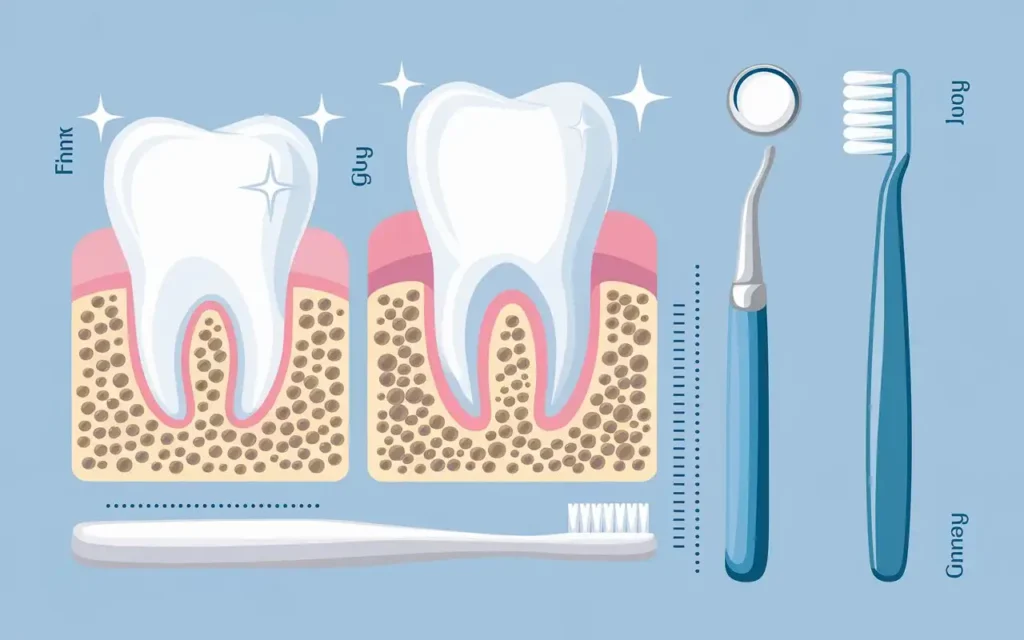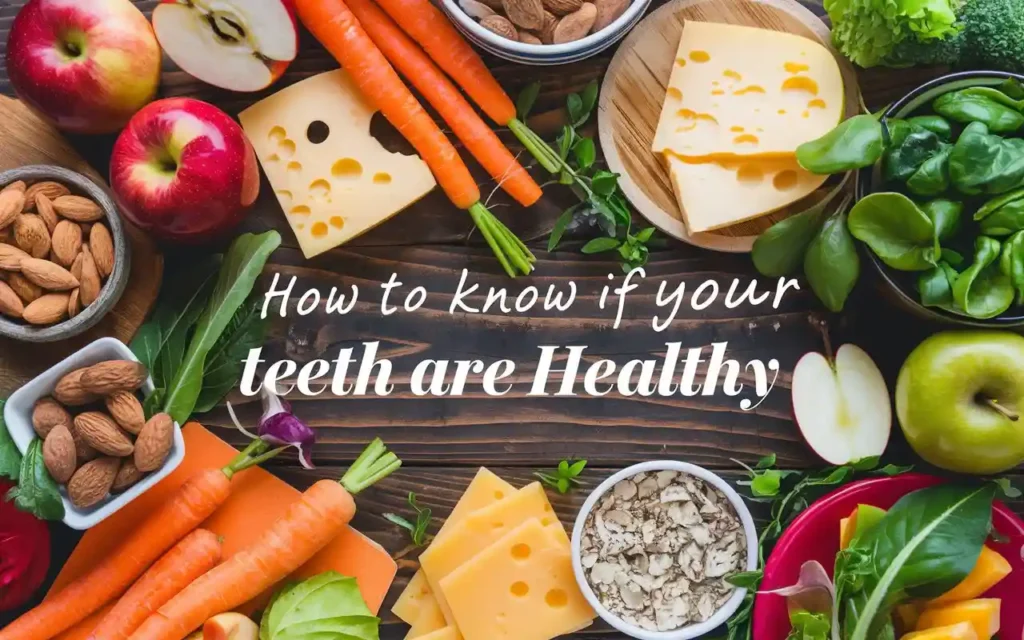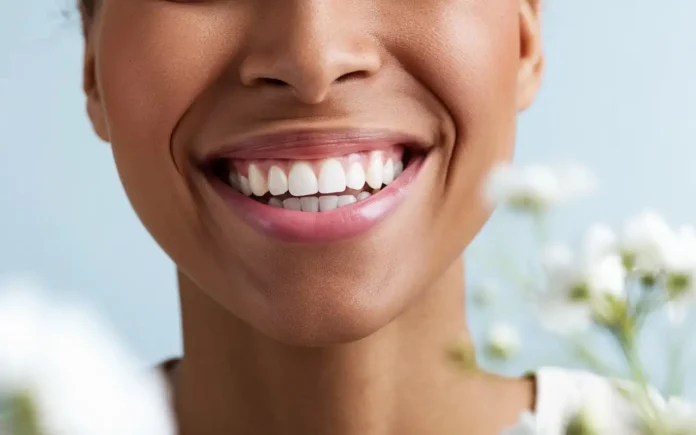How to Know If Your Teeth Are Healthy: A Comprehensive Guide
Maintaining good oral health is essential for your overall well-being. But how to know if your teeth are healthy? This comprehensive guide will walk you through everything you need to assess and improve your dental health.
Table of Contents
- 1. Introduction: Why Knowing If Your Teeth Are Healthy Matters
- 2. Understanding Dental Anatomy
- 3. Signs of Healthy Teeth and Gums
- 4. Common Dental Problems to Watch Out For
- 5. How to Perform a Self-Assessment of Your Dental Health
- 6. The Role of Diet in Dental Health
- 7. Importance of Regular Dental Check-Ups
- 8. Daily Habits for Maintaining Healthy Teeth
- 9. The Impact of Lifestyle Choices on Your Teeth
- 10. When to Seek Professional Help
1. Introduction: Why Knowing If Your Teeth Are Healthy Matters
How to know if your teeth are healthy is a question many people ask but seldom find comprehensive answers to. Understanding the state of your dental health is crucial because it affects not just your mouth, but your entire body.
Healthy teeth contribute to a confident smile, effective chewing, and clear speech. Conversely, poor dental health can lead to a host of problems, including gum disease, tooth loss, and even heart conditions. This guide aims to equip you with the knowledge to assess your dental health effectively.
2. Understanding Dental Anatomy

Before diving into how to know if your teeth are healthy, it’s important to understand the basics of dental anatomy. Knowing the structure of your teeth can help you identify potential issues early on.
2.1 The Different Types of Teeth
Humans have four types of teeth, each serving a specific function:
- Incisors: The front teeth used for cutting food.
- Canines: Sharp teeth used for tearing food.
- Premolars: Transitional teeth used for crushing food.
- Molars: Flat teeth used for grinding food.
2.2 The Layers of a Tooth
Each tooth comprises multiple layers:
| Layer | Description |
|---|---|
| Enamel | The hard, outer surface that protects the tooth. |
| Dentin | The layer beneath the enamel, sensitive to temperature and decay. |
| Pulp | The innermost part containing nerves and blood vessels. |
3. Signs of Healthy Teeth and Gums

Recognizing the signs of good oral health is key in how to know if your teeth are healthy. Here are some indicators that your teeth and gums are in good shape:
3.1 Firm and Pink Gums
Healthy gums are firm to the touch and have a pinkish hue. They should not bleed during brushing or flossing.
3.2 Fresh Breath
Consistently fresh breath is a sign of good oral hygiene. Bad breath can indicate the presence of bacteria or dental issues.
3.3 Strong Teeth Without Sensitivity
If you can consume hot and cold foods without discomfort, it’s a good sign that your teeth are healthy.
3.4 No Cavities or Decay
Regular dental check-ups that show no signs of cavities or decay are a clear indicator of healthy teeth.
4. Common Dental Problems to Watch Out For
Understanding common dental issues is part of how to know if your teeth are healthy. Being aware of these problems can help you take preventative measures.
4.1 Tooth Decay
Cavities form when plaque builds up and erodes the enamel. Early signs include sensitivity and visible holes in teeth.
4.2 Gum Disease
Gingivitis and periodontitis are stages of gum disease characterized by inflammation, bleeding, and receding gums.
4.3 Tooth Sensitivity
Sensitivity to hot or cold can indicate enamel erosion or exposed dentin.
4.4 Bad Breath
Persistent bad breath may be a sign of bacterial infection or other dental issues.
5. How to Perform a Self-Assessment of Your Dental Health

Conducting a self-examination is a practical approach to how to know if your teeth are healthy. Here’s a step-by-step guide:
5.1 Inspect Your Teeth
Use a mirror to look for discoloration, spots, or visible cavities.
5.2 Check Your Gums
Gently press your gums to see if they are firm and check for any bleeding.
5.3 Assess Breath Freshness
Bad breath can be a sign of dental issues. Floss and smell the floss to check for odors.
5.4 Monitor Sensitivity
Take note of any discomfort when consuming hot or cold foods.
6. The Role of Diet in Dental Health

Diet plays a significant role in how to know if your teeth are healthy. What you eat can either strengthen or harm your teeth.
6.1 Foods That Promote Healthy Teeth
Incorporate these foods into your diet:
- Dairy products rich in calcium
- Crunchy fruits and vegetables
- Nuts and seeds containing phosphorus
6.2 Foods to Avoid
Limit intake of:
- Sugary snacks and drinks
- Acidic foods that erode enamel
- Sticky foods that cling to teeth
7. Importance of Regular Dental Check-Ups
Regular visits to the dentist are essential in understanding how to know if your teeth are healthy. Professional evaluations can detect issues not visible during self-assessments.
7.1 Professional Cleaning
Dentists remove plaque and tartar build-up that regular brushing can’t eliminate.
7.2 Early Detection of Problems
Regular check-ups allow for early intervention, preventing minor issues from becoming major problems.
7.3 Personalized Advice
Your dentist can provide tailored recommendations based on your specific needs.
8. Daily Habits for Maintaining Healthy Teeth

Developing good daily habits is crucial in how to know if your teeth are healthy. Consistency is key to long-term oral health.
8.1 Proper Brushing Techniques
Brush at least twice a day using fluoride toothpaste. Use gentle, circular motions.
8.2 Flossing Daily
Flossing removes food particles and plaque between teeth where brushes can’t reach.
8.3 Using Mouthwash
An antimicrobial mouthwash can reduce bacteria and freshen breath.
9. The Impact of Lifestyle Choices on Your Teeth
Your lifestyle choices significantly affect how to know if your teeth are healthy. Certain habits can either enhance or deteriorate your dental health.
9.1 Smoking and Tobacco Use
Tobacco stains teeth and increases the risk of gum disease and oral cancer.
9.2 Alcohol Consumption
Excessive alcohol can lead to dry mouth and increases the risk of cavities.
9.3 Stress and Teeth Grinding
Stress can cause bruxism (teeth grinding), leading to tooth wear and jaw pain.
10. When to Seek Professional Help
Knowing how to know if your teeth are healthy includes recognizing when it’s time to consult a professional. Don’t hesitate to visit your dentist if you experience:
10.1 Persistent Pain or Discomfort
Any ongoing pain should be evaluated promptly.
10.2 Visible Changes in Your Mouth
Swelling, sores, or unusual patches require professional attention.
10.3 Difficulty Eating or Speaking
These could be signs of underlying dental issues that need addressing.
Conclusion
Understanding how to know if your teeth are healthy is vital for maintaining not just oral health but overall wellness. Regular self-assessments, good daily habits, and professional check-ups are all part of keeping your smile bright and healthy.
References
- American Dental Association
- MouthHealthy by ADA
- Centers for Disease Control and Prevention: Oral Health
- WebMD Oral Health




